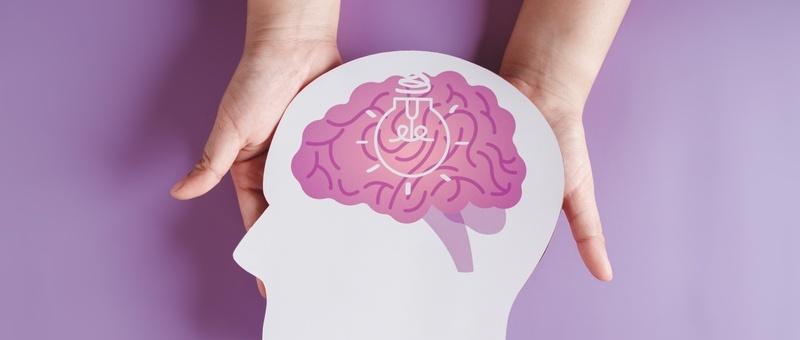
What causes dementia?
Peer reviewed by Dr Krishna Vakharia, MRCGPAuthored by Dr Colin Tidy, MRCGPOriginally published 22 Jan 2024
- DownloadDownload
- Share
Dementia is a condition that gets worse over time and causes problems with how our brain functions, particularly memory loss and problems with thinking, learning, reasoning, problem solving, and emotions. This increasingly interferes with activities of daily living - until even basic things such as dressing and eating are affected.
In this article:
Whilst a memory problem is a symptom of dementia, forgetting things does not mean you have the condition. Memory problems are usual and can be a normal part of aging.
Dementia is caused by damage to, and the death of, nerve cells in a certain part of the brain, especially the cerebral cortex - where we think and work things out.
The common causes of dementia are:
Alzheimer's disease - around 1 in 2 people with dementia have this.
Vascular dementia - around 1 in 4 people with dementia have this.
Mixed dementia - when a person has more than one type of dementia. Alzheimer’s disease with vascular dementia is the most common but other combinations can happen, particularly Alzheimer’s disease and dementia with Lewy bodies.
There are many other types of dementia such as dementia with Lewy bodies and frontotemporal dementia. These are rarer than Alzheimer's disease and vascular dementia.
Dementia can also be caused by vitamin deficiencies - particularly B1, B6 or B12. It can rarely be caused by other conditions affecting the brain, such as CJD.
Continue reading below
Causes of Alzheimer's
It's not known exactly how Alzheimer's disease develops but it is thought to be caused by the abnormal build-up of proteins in and around brain cells.
There are abnormal deposits of a protein called amyloid in the brain and these cause inflammation, which leads to damage and death of nerve cells in certain parts of the brain, especially the cerebral cortex. Accumulation of another substance called tau protein plays a role in causing Alzheimer's disease.
The damage to the nerve cells causes a decrease in chemical messengers (neurotransmitters) involved in sending messages, or signals, between brain cells. Levels of one neurotransmitter, called acetylcholine, are particularly low in Alzheimer's disease.
There is usually a long time-lag from the start of the changes in the brain until symptoms develop. The symptoms usually get worse slowly until a person has severe dementia. However these time delays vary and for some people the symptoms start and then get worse quicker.
Although it is unknown what triggers Alzheimer's disease, several factors increase the chance of developing the condition - these include:
Getting older, especially after the age of 65 years. But early-onset Alzheimer's disease can happen in people from around the age of 40.
The genes you inherit from your parents can contribute to your chances of developing Alzheimer's disease, although the actual increase is small. However, in a few families, Alzheimer's disease is caused by the inheritance of a single gene and the chances of the condition being passed on to the next generation are much higher.
People with Down's syndrome have a higher chance of developing Alzheimer's disease. This is because the genetic changes that cause Down's syndrome can also cause the changes in the brain that can lead to Alzheimer's disease.
Some lifestyle factors such as smoking, midlife obesity, and a diet high in saturated fats are associated with an increased risk of Alzheimer's disease.
Alcohol intake above the recommended guideline levels is also an important risk factor. Alzheimer's disease is more likely in people who drink more than 14 units of alcohol per week.
Other possible factors for increasing your chances of getting Alzheimer's disease include - severe head injury, hearing loss, untreated depression, loneliness or social isolation, lack of physical exercise, and increased blood cholesterol.
Patient picks for Memory loss and dementia

Brain and nerves
What is early Alzheimer’s disease - and what causes it?
Around 70,800 people in the UK have early onset dementia - meaning they are diagnosed before the age of 65. Alzheimer's disease, the most common cause of dementia, accounts for around one third of these cases. Here we look at what we know about Alzheimer's - its causes and symptoms.
by Lydia Smith

Brain and nerves
Alzheimer's disease
Alzheimer's disease is a cause of dementia. There is no cure and it can cause a great deal of distress for those affected and their families. However, early diagnosis is important because there is a great deal of support as well as medication that can help.
by Dr Colin Tidy, MRCGP
Causes of Lewy body dementia
It is not known exactly how Lewy body dementia develops but it is associated with deposits of a protein called alpha-synuclein in the brain. These deposits, which are called Lewy bodies, cause changes in the chemicals (neurotransmitters) in the brain.
Almost all people with Lewy body dementia do not have a family history of the disease, but having a family member with Lewy body dementia may increase the likelihood of getting it. A few family clusters of Lewy body dementia have been reported and it is likely that some genetic factors play a role in the cause. However, for most people with Lewy body dementia, the cause is unknown.
Age is the biggest factor for having Lewy body dementia. No specific lifestyle factor has been proven to increase the risk of Lewy body dementia. However, there is an increased chance if a person has Parkinson's disease.
Continue reading below
Causes of vascular dementia
Vascular dementia is caused when certain parts of the brain become damaged due to a lack of blood supply. This may be caused by a major stroke, multiple smaller unrecognised strokes (multi-infarct dementia) or long term (chronic) changes in smaller vessels within the brain (subcortical dementia).
Although a major stroke can increase the chances of dementia, not everyone who has had a stroke will develop dementia. The problems caused by a lack of blood supply will depend on the areas of the brain that are affected.
The risk factors for vascular dementia are similar to those for heart disease - these include, smoking, high cholestrol, high blood pressure (hypertension), and diabetes.
Causes of frontotemporal dementia
Frontotemporal dementia is caused by shrinkage (degeneration) of the frontal and temporal lobes of the brain. Certain abnormal substances build up in the brain. The cause of these changes for most people with frontotemporal dementia is unknown.
It is estimated that around 1 in 3 people with frontotemporal dementia have a strong family history of the condition. Abnormal genetic changes (gene mutations) have been found in people with frontotemporal dementia, particularly the C9orf72 gene on chromosome 9. The C9orf72 gene is also associated with another condition, called amyotrophic lateral sclerosis. Other genes have also been shown to be associated with frontotemporal dementia.
There is also evidence that a severe head injury increases the risk of developing frontotemporal dementia in the future.
Continue reading below
Dementia reseach
There is much that we do not understand about dementia, particularly what causes the different types and the best ways to treat them. There is a lot of ongoing research into dementia, particularly the causes, treatments, care, and prevention.
You can get involved with dementia research at the NHS Join dementia research programme and Alzheimer's Research UK can help you get support.
Article history
The information on this page is peer reviewed by qualified clinicians.
22 Jan 2024 | Originally published
Authored by:
Dr Colin Tidy, MRCGPPeer reviewed by
Dr Krishna Vakharia, MRCGP

Ask, share, connect.
Browse discussions, ask questions, and share experiences across hundreds of health topics.

Feeling unwell?
Assess your symptoms online for free